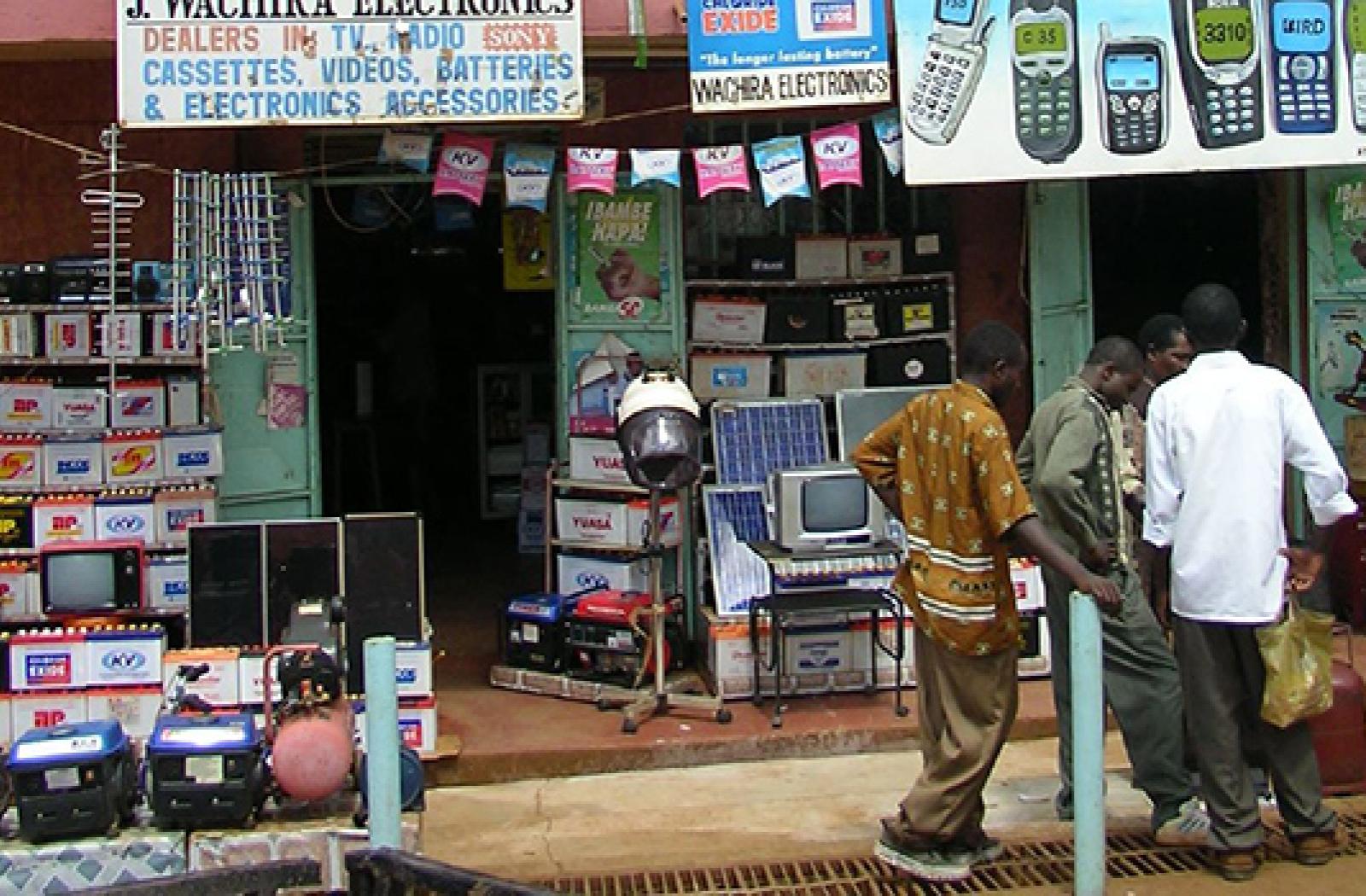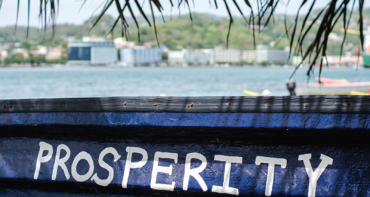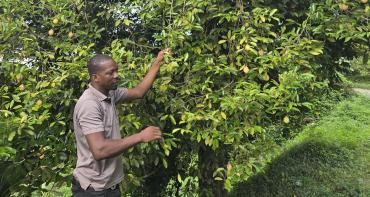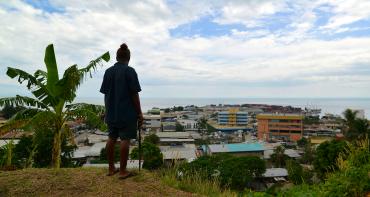Philda Maiga was deployed as a national trade adviser to Kenya from 2014 until 2019 under the Hub and Spokes Programme. Providing technical support to the Ministry of Industry, Trade and Cooperatives, she shares insights from her experience in supporting the development of Kenya’s first ever national strategy to combat illicit trade.

The Hub and Spokes Programme, which concluded implementation on 31 August 2019, was a joint programme of the European Union, the ACP Group Secretariat, the Commonwealth Secretariat and the Organisation Internationale de la Francophonie, aimed at enhancing trade capacity in African, Caribbean and Pacific countries.
Under the programme, managed by the Commonwealth Secretariat, Philda Maiga was deployed as a national trade adviser to Kenya from 2014 until 2019. Providing technical support to the Ministry of Industry, Trade and Cooperatives, she shares insights from her experience in supporting the development of Kenya’s first ever national strategy to combat illicit trade.
Launched in 2017, Kenya’s Big 4 Agenda (B4A) is an ambition for a radical increase in manufacturing; provision of affordable housing; provision of universal health care; and attainment of food security, all by 2022. Symbolising President Kenyatta’s current administration, its overriding goal is a more socio-economically just society for all Kenyans. While the agenda requires leveraging resources and partnerships in developmental aid and foreign direct investment, combatting illicit trade lies at its centre. Therefore, increasing the tax yield by sealing the loopholes that facilitate illicit trade, such as uncustomed, undervalued and contraband goods, is a major government imperative.
Illicit trade is any form of trade that infringes rules, laws, regulations, licenses, taxation systems, embargos and procedures that countries use to organise trade, protect citizens, raise standards of living and enforce codes of ethics. It is organised transnational crime that harms economic growth and job creation, challenges the rule of law, robs governments of revenue and threatens human rights and the quality of life. It thus requires a strong, nationally coordinated response.
A global problem, illicit trade is not unique to Kenya. According to the World Economic Forum (WEF), illicit trade has increased seven times faster than legitimate trade since the 1990s. The International Monetary Fund and the World Bank Group estimate that this parallel economy now represents 15 to 20 percent of global GDP. In 2014 alone, the global value of illicit trade was as high as USD 12 trillion - approximately the size of China’s total economic output in that same year (WEF). A 2012 study by the Kenya Association of Manufacturers (KAM) estimates that counterfeit and substandard products cost the East African region over USD 500 million in lost government tax revenue annually. The study indicates that Kenyan manufacturers lose 40 percent worth of sales annually as a result of trade in counterfeits. Studies are underway for updated statistics for Kenya.
In early 2018, the government discovered and conducted seizures of several tonnes of substandard sugar and fake fertilizer circulating in the market. This saw the war against illicit trade gain serious traction, especially since combatting the vice became seen as pertinent to achieving the B4A. Fake fertilizer, for example, affects food security goals by returning lower than normal yields; whereas substandard sugar may have health ramifications and increase the disease burden. Thus, these issues have informed government’s bid to strengthen the trade sector towards a more vibrant economy.
But whilst institutions exist in Kenya to combat the vice, such as the Anti-Counterfeit Authority (ACA), coordination has been weak, enabling criminals and cartels to exploit administrative and governance loopholes.
In July 2018, at the height of this fight against illicit trade, government identified the need for an inter-agency approach to enable policy and operational coordination. The Inter–Agency Anti-Illicit Trade Executive Forum was established, representing all enforcement agencies in an effort to increase the capacity for identification and interdiction of illicit goods. Critical to this approach is the participation of all institutions, including, but not limited to, the ACA, Kenya Intellectual Property Institute and the Director of Public Prosecutions. Under the Ministry of Industry, Trade and Cooperatives, the State Department of Trade became the Executive Forum Secretariat.
As the Hub and Spokes national trade adviser, also based in this Department, I thus embarked on developing Kenya’s first ever national strategy to combat illicit trade and coordinated subsequent stakeholder consultation for its approval. Providing a framework to synchronise all institutional enforcement and public awareness initiatives combatting illicit trade, the strategy facilitates attainment of Kenya’s development goals. Consumer protection, fair trade, intellectual property rights protection and enforcement, revenue collection and FDI attraction are at its core.
The approach has two prongs - public awareness/outreach and enforcement. The public awareness/outreach arm seeks to mobilise public awareness initiatives to promote understanding of illicit trade and its associated economic and social harm; whereas the enforcement arm combats illicit trade through surveillance, interdiction investigations and other appropriate measures. The strategy enlists stakeholders to update their approaches on several fronts, including policy, regulatory, and legal frameworks, so as to increase enforcement outcomes and achieve operational coordination.
Ultimately, the strategy relies on collaboration between public, private and international actors. Collaboration with international partners is anticipated on aspects of training and sharing of intelligence information. To this end, enforcement agencies are expected to intensify collaboration with organisations such as the World Customs Organization. Kenya is expected to sign the International Declaration of Intent to Prevent the Maritime Transport of Counterfeit Goods, addressing concerns that vessels transporting legitimate products are also exploited by criminal networks to transport fake versions, and calls on the maritime industry to address counterfeits through continuous proactive measures.
Effective implementation of the strategy is a collective responsibility of the Executive Forum, which has the duty to ensure that individuals and firms involved in illicit trade do not benefit from the proceeds of such crime. Since its establishment, the Executive Forum has conducted several seizures and destroyed merchandise worth billions of Kenyan shillings. This success is commendable, yet wider results are needed and expected with implementation of the national strategy - a game changer that will put Kenya on the pedestal towards faster attainment of its B4A aspirations by 2022 and beyond.
Kenya’s National Action Plan and Implementation Framework to Combat Illicit Trade, with recognition of Philda Maiga’s support, was approved and launched by the Minister for Industry, Trade and Cooperatives in June 2019; and is currently being implemented under the coordination of the Executive Forum.



